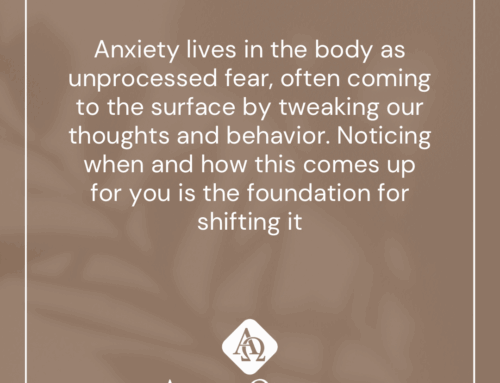No matter how motivated or excited we are to change and grow, it always seems to come with some kind of pain. Growing pains apply to more than just the body! I find it helpful to normalize this experience for anyone taking on the process of change. There will be moments along the way that lead you to doubt what you’re doing and why it’s important. Now, this makes sense because in many ways, the pattern we’re seeking to change probably served us as a way of surviving whatever environment we were in when it developed. In this way, it’s understandable that on some level we would feel apprehensive about abandoning what was at one point crucial for our survival. It’s also understandable that this way of surviving may have reached its expiration date. When this happens, the pattern may turn from useful to rigid and limiting, which is typically what leads us to want to change or grow. It may be important to allow yourself some space to grieve the death of this old pattern. Even patterns that are keeping us stuck still have a familiarity that can be hard to live without.
It may also be helpful to learn to linger with our experience when we run into the guards of our template. These guards have been shaped and formed by our experience, which tells us, “Do NOT go there”. These guardians come up for us in the form of general emotional distress, fight or flight responses, doubt demons (negative thoughts), or fear and resistance. Some questions to help you linger here if this fits for you:
How has this pattern helped me or kept me protected in the past?
What fears stir up for me when I consider stepping outside my template?
What do I find myself longing for in these moments?
How can I dip my toe in the water of change/what’s the next best place to expand my template that feels like a safe risk?
Want more ways to receive our content? Follow us on Instagram or Facebook or subscribe to our e-newsletter!
* The information provided is for self-enrichment and not intended to replace any necessary mental health treatment.
Warmly,
Jonathan Dixon, LMFT
Alpha Omega Team





